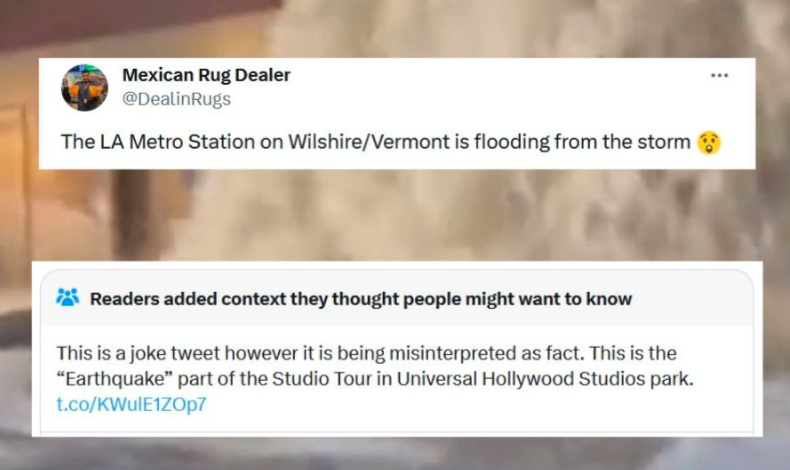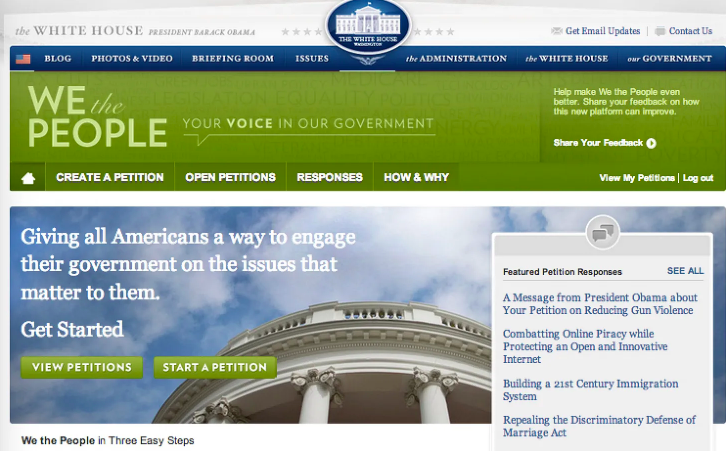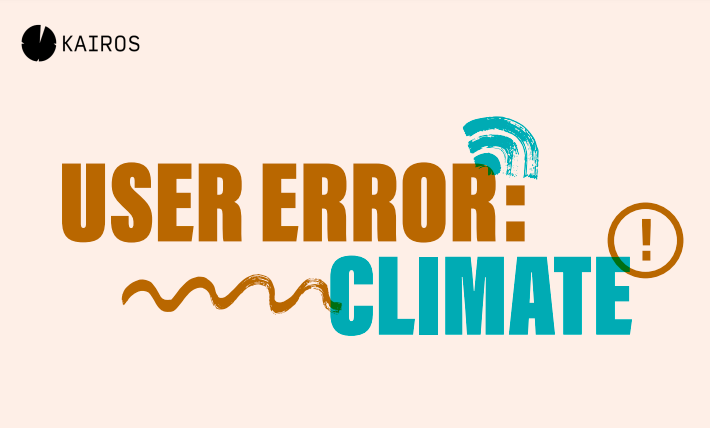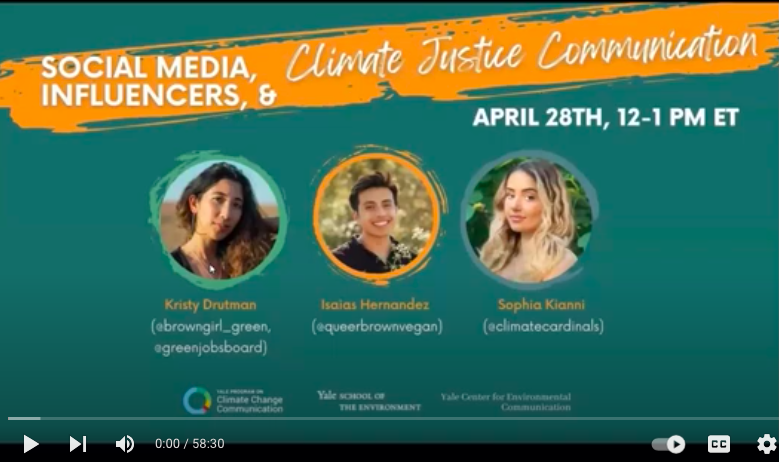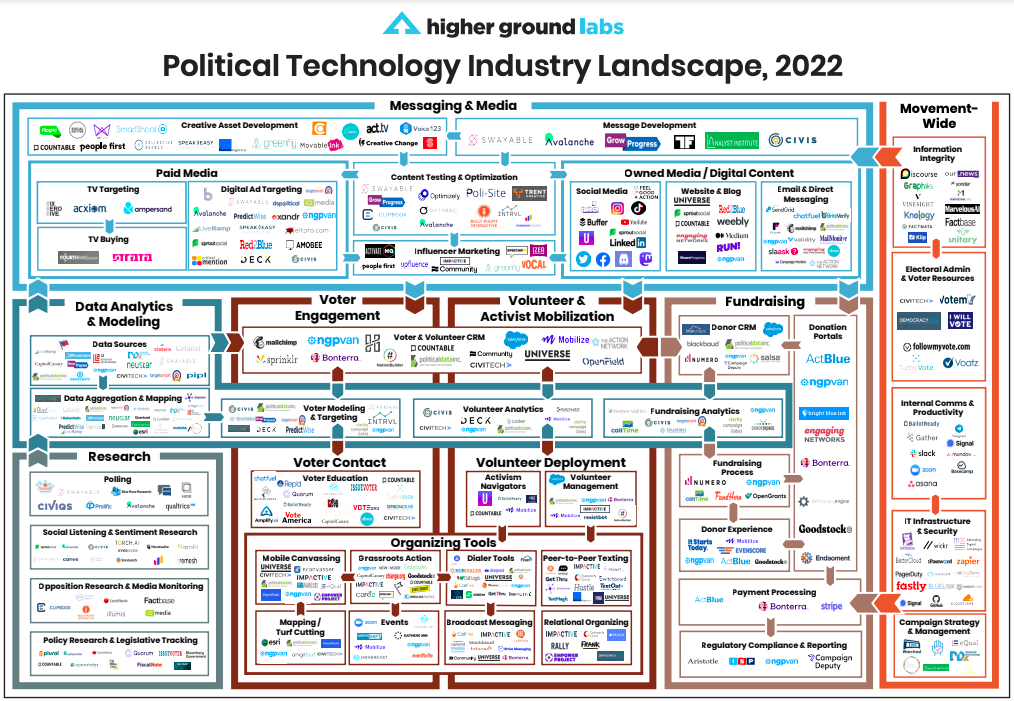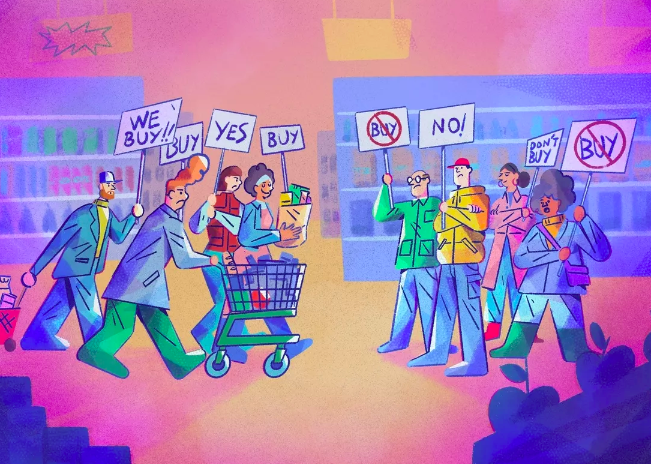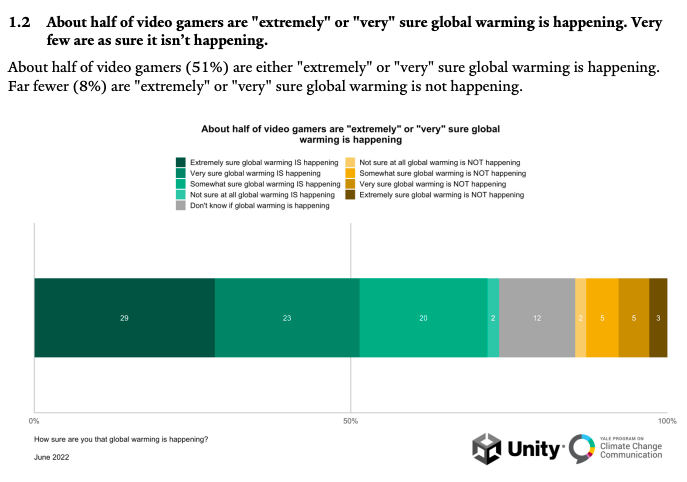Resources
Search below for resources covering the intersection of climate engagement, social science and data analytics.
RESULTS
During disasters, people flock to social media to share warnings, coordinate in real-time, and share images of the destruction. But others use the chaos of breaking news events to spread false information. This podcast episode explores the rise of fake news in the environmental space, from #HawaiiNotUkraine to a news site spreading climate disinformation in Wyoming. Plus, the hosts speak to the people fighting back, including a community fact-checker correcting earthquake disinformation on X.
On the declining relevance of digital petitions
Digital petitions are a mostly-outdated tactic now. Both our politics and our media environment have moved in directions that render them less useful. Where petitioning used to be the central tactic in a digital campaigner’s toolbox, the Trump years saw a rebirth of collective, place-based mobilization. They were years of record-setting marches and participatory local-level civic engagement. Plus we’ve seen a renaissance in union organizing these past few years. But still, the relevance of petitions has diminished—related to the pervasive sense that government officials no longer behave as though listening to and representing citizens is a core part of the job. And it’s a reminder that most of our digital behavior is downstream of a small handful of quasi-monopolistic companies. If American Democracy is going to make it through the next decade, we are going to need better elites. I suspect, if that happens, we will happen to see digital petitions make a comeback. In the meantime, campaigners will do the best with the tools they have available—they’ll develop tactical repertoires that fit the changing media environment and respond to the political opportunity structure.
User Error: Climate
This report explores Big Tech’s actions that feed the climate crisis. Big Tech’s actions include: allowing disinformation to flourish online; providing cloud services to help oil and gas companies pump more fossil fuels; participating in trade organizations that lobby against policies that would help the US shrink emissions; producing ever-growing emissions of their own; and funding and promoting false solutions. This report ends with demands for Big Tech to stop these actions that fund the worsening of the climate crisis. To fight the climate crisis, Google, Meta, Microsoft, Apple, and Amazon need to: support policies that help the U.S. end its reliance on fossil fuels; withdraw from trade groups that lobby against climate mitigation; support climate mitigation efforts that have grassroots support, like shrinking fossil fuel and other polluting industries to cut greenhouse gas emissions at their source; stop providing cloud services to oil and gas companies; eliminate climate disinformation on your platforms; and create and follow measurable plans to get to carbon-zero, not ones based on speculative tech and wishful thinking.
Record-breaking heat changes the climate discourse online
Effects of the climate crisis and various political responses have captured attention on social media and online news media recently. Several Instagram posts about the global record-breaking heat this month went viral – and they exemplify a key issue that the climate world is facing: how do we talk about the climate crisis without making people feel too doomed or helpless in the face of it? Seventh Generation, an eco-friendly paper, cleaning, and personal care product corporation, is running ads in favor of the Green New Deal. Presidential candidate and conspiracy theorist RFK Jr. is a staunch believer in climate change… but he also thinks it’s being used to impose totalitarian control, according to social media posts. The FTC is reviewing its “Green Guides” for the first time in nearly a decade.
Social Media, Influencers, and Climate Justice Communication
Leading eco-influencers are harnessing online platforms for education and social change around environmental, climate, and justice issues. Kristy Drutman of Browngirl Green and Green Jobs Board is working to improve the anti-racist practices of environmental organizations and publicly speaks on climate justice. Isaias Hernandez of QueerBrownVegan creates online educational climate content and collaborates with writers, communicators and researchers. Sophia Kianni of Climate Cardinals is working to make the climate movement more accessible by translating and sourcing crucial climate resources into more than 100 languages.
2022 Political Tech Landscape Report
This report offers a succinct view of the progressive technology landscape that can be used for future election campaigns. Campaigns flock to streaming services as more begin to accept political ads. Influencer marketing has achieved institutional adoption. Political text messages can reach a tipping point. Campaigns are starting to purchase their tech earlier in electoral cycles. Tech has improved at the down-ballot level, but campaigns sometimes still lack affordable and effective basic tools. Large company mergers of infrastructure for key tactics (such as NGP VAN) raises questions among practitioners regarding the future of core voter data systems.
Filling the Progressive TikTok Gap: Part 2
Across TikTok, from newcomers to seasoned professionals, virtually no progressive groups feel they have a grip on what effective political content looks like, how to generate it, or how to have it support organizing strategy consistently. This report studies how to fill that gap. First, narrative content blows strictly informational content out of the water. Second, connect a message to identity — or not at all. Third, in-house content can work, but only if you break from the meta playbook. Fourth, TikTok is still a black box—there’s much more to learn.
How Much Do Boycotts Affect a Company’s Bottom Line?
Social movement attempts to boycott a company’s product may actually backfire. This research assessing different “disruptive capacity” tactics found that countermovements to boycotts, sometimes called “buycotts,” can have effects that are stronger than boycotts. In other words, boycotts of company products can cause increases in product sales. This research assessed the effects of a boycott and countermovement’s “buycott” of the company Goya’s products in 2020, finding that sales increased.
2023 Benchmarks Study
The nature of engagement with and donations to nonprofits have changed, as nonprofits’ digital presences have increased. Total online revenue for nonprofits decreased by 4% in 2022, and nonprofits reported especially sharp drops in revenue on Giving Tuesday and December 31. While one-time giving declined, monthly giving revenue increased by 12% — accounting for 28% of all online revenue in 2022. Digital advertising investment by nonprofits increased by 28%, and internet search remained the most reliable platform to generate a positive return on ad spend. Nonprofits sent 60 email messages per subscriber, including 29 fundraising appeals, and email generated 14% of all online revenue. While platforms like Facebook, Instagram, and Twitter dominated nonprofit social media engagement, 30% of participants reported being active on TikTok. Return on ad spending was highest for search ads: $2.75 for every dollar spent. Return on ad spending for Meta was $0.50 and $0.41 for Twitter. The majority of nonprofit website traffic came from users on mobile devices — 57%, with 43% of traffic from users on desktop devices. However, 75% of revenue came from users on desktop devices.
Poll: What do video gamers think about global warming?
Video gamers are somewhat more concerned about climate change and are more willing to act than the average American. About three in four video gamers (73%) think global warming is happening, and the majority of video gamers (56%) understand that global warming is mostly human-caused. About one in five video gamers (22%) have seen or heard content related to global warming as part of gaming in the last 12 months, either as a topic in a game they have played (16%) or in a video gaming stream they have watched (16%). About half of video gamers are at least "moderately confident" that people from the gaming community, working together, can affect what local businesses (52%), corporations (52%), their state government (50%), the federal government (49%), or their local government (48%) does about global warming. More than half of video gamers (59%) say they either “probably” or “definitely” would sign a petition about global warming.
Pagination
- Page 1
- Next page
